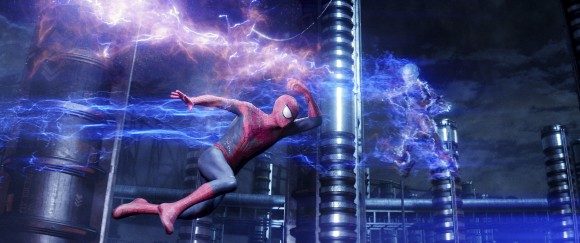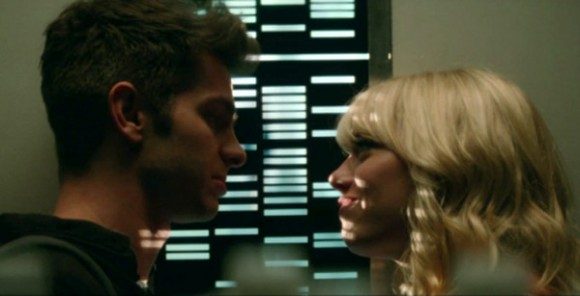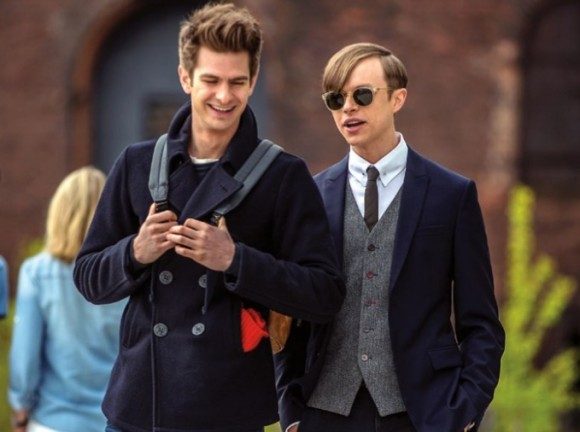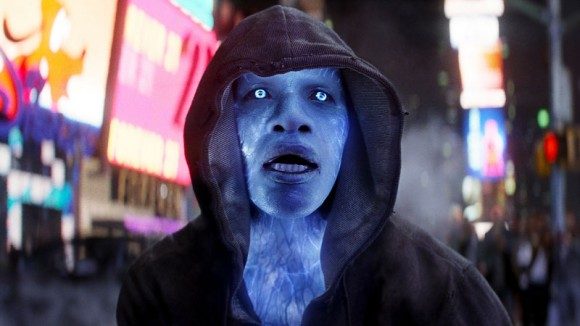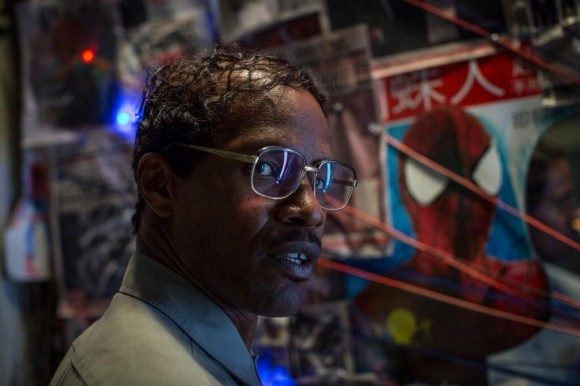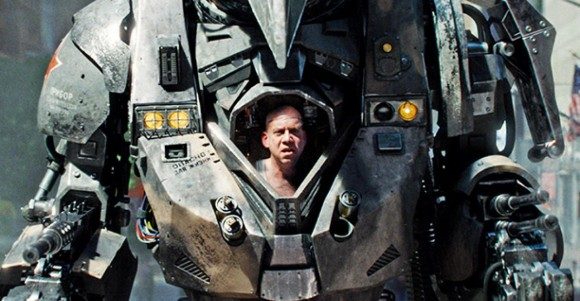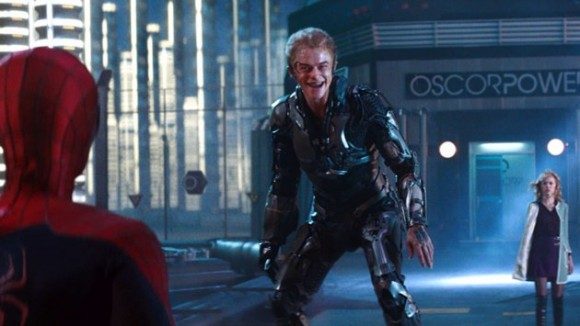This is a tough one to score – not talk about, I’ve got plenty to say – but assigning a numerical value won’t be easy. So many individual parts of The Amazing Spider-Man 2 work well. Really well. But those parts make what doesn’t work stick out that much worse.
Let’s start with what I enjoyed most about this film. Actually, it’s something similar films of this ilk – superhero films based on comic books – often get wrong: character interaction. Far too many times I’ve watched conversations with clunky or cliched dialogue between actors who have no chemistry and wished I could just skip to the superheroes and villains hitting each other. When we got to the action scenes in The Amazing Spider-Man 2 – as fun as they were – I was actually a little sad that we couldn’t see more of Peter Parker (Andrew Garfield) and Gwen Stacy’s (Emma Stone) relationship, and the pitfalls and labor it involves. And that’s because, well, Stone and Garfield are actually given good lines to read, and the two have genuine chemistry – perhaps helped by the fact that (as a friend who keeps up with such things informed me) the two are a couple in real life.
The few scenes between Garfield and Sally Field – whom I liked here more than in the first Amazing Spider-Man due on no small part to the fact that she was given more to do than look sad – as Peter’s Aunt May were effective, conveying the depth of a relationship between an adoptive parent and child. Dane DeHaan’s Harry Osborn also gets some standout one-on-ones: with his father, Norman – played by Chris Cooper in a surprisingly layered one scene wonder – and with Peter as the two rekindle a close but broken friendship. Much like Peter and Gwen feel like a real couple, Harry and Peter feel like real friends.
Speaking of Harry, let’s move on to the bad guys – after all a superhero is only as good as his supervillains. First off is Max Dillon aka Electro, played by Jamie Foxx. Electro represents an about face from the first film, in which we had Kurt Connors, aka The Lizard, as a relatively good and sane man who loses it when he undergoes the lizard transformation that gives him his powers. Max isn’t that normal person who’s driven insane by superpowers gained, he’s an insane person who gains powers and becomes incredibly dangerous. And, for the most part, the film pulls this character off. In one of the best scenes we see a newly powered Max misinterpret the actions of Spider-Man and the police. He loses his already weak grip on reality in a sequence that is actually a bit frightening. It’s a well-executed combination of direction, acting, and music. “They shot-at-me, they’re dead-to-me, and now they’re all my E-NE-MIES!” (Or so says Electro’s dubstep theme music.)
But, as good as Max’s post-powers portrayal was, I found the pre-powers depiction unnerving for the wrong reasons. His status as a socially inept Spider-Man-stalker should have been creepy and a little sad. Instead, it’s played for laughs. At least now I know what Fatal Attraction would have been like if the first half was a comedy.
There’s not much to say about Paul Giamatti’s Rhino, as he’s got nothing more than an elongated cameo. I guess this is minor spoilers, so skip down to the next paragraph if you’ve managed to make it through the film’s marketing campaign unsullied and want to keep it that way, but that bit from the trailers where Spider-Man hurls a manhole cover at Rhino is literally the last shot of the movie. Giamatti puts on an over-the-top Russian accent, yells a lot, and sets up future movies like Sinister Six, that’s it. Oh, and his Rhino suit has a spot on the chest he can pop his head out of and yell from; it looks pretty ridiculous.
It’s DeHaan’s Harry that’s the most interesting of Spidey 2’s villains. The actor effortlessly switches from sympathetic to unsettling, sometimes within the same scene. Someone must have realized that anyone (or a lot of people) who watched the original Spider-Man movie trilogy, weren’t interested in watching Harry’s transformation from Peter’s friend to Peter’s enemy over the course of several films, and made the wise choice to isolate that transformation to one film. I can say wise, because they manage pull that arc off rather well, setting up Harry’s inherent darkness early on (in that great scene with Chris Cooper I mentioned earlier) and giving him legitimate motivations – survival and revenge – for his transformation into the Green Goblin. However, there are some problems with that last part.
This movie has a lot going on. A lot. Peter is struggling with emotional fallout over his absent parents and the promise he made to Gwen’s father at the end of the last film to stay away from her. Gwen is struggling with a decision to move to England for school and leave Peter behind. Max is struggling with his social ineptitude and eventual transformation into Electro. Peter is also struggling with keeping his superhero lifestyle a secret from Aunt May. Harry is struggling with the corporate espionage behind the company he inherited from his father, and his the health issues he also inherited from his father. I may have forgotten something else, but maybe you can see why. All of these struggles are actually good character motivation, but they need proper screen time and focus to achieve their full effect. If only a few had been trimmed out and left for a future film.
There are enough plotlines in this two hours and twenty minutes long movie to fill a TV miniseries. And the problem isn’t that they’re hard to follow, its just that some beats in one plot can lessen the beats in another, especially when they all crash into each other in a finale that laughs in the face of structure. Large parts of the ending end up feeling rushed and tacked on. And, worst of all, there’s a moment that desperately tries to be the most emotionally intense moment of the film, but isn’t. Not in any way, shape, or form. I’m not going to spoil it, but let’s just say it’s something that should have been in a film where Harry was unquestionably the main villain and his relationship with Peter was the centerpiece. It’s big problems like these that make the multitude of small good things harder to enjoy.
Verdict: 3 out of 5
If you’re going into this movie hoping to see Spider-Man be his snarky self and fight some cool villains, you probably won’t be disappointed. If you – like me – were hoping for a tighter, stronger story – something more like what (I felt) was delivered in Captain America: The Winter Soldier – you may be left wanting. That said, I guess I still liked the movie well enough to recommend it, and thus the score just edges into the upper half of our range.

